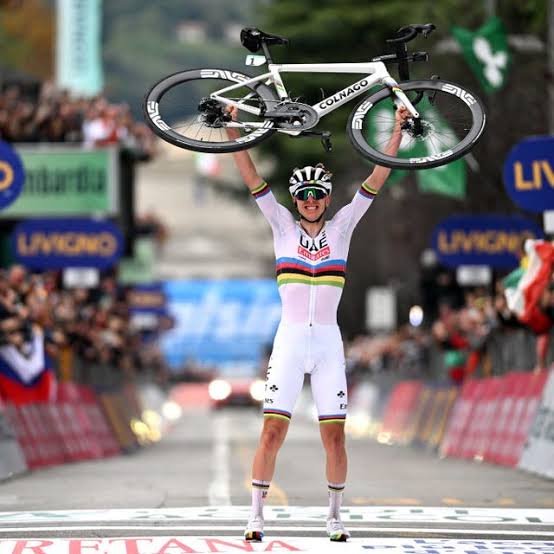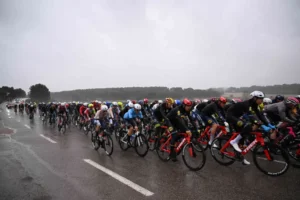
The world of professional cycling has always been rife with speculation and controversy, but recent performances from Tadej Pogacar and Jonas Vingegaard have ignited a particularly intense debate in France. As the cycling community grapples with the implications of their astonishing achievements, questions surrounding their meteoric rise from relative obscurity in the junior ranks to dominating the Tour de France have begun to surface.
In the last few years, both Pogacar and Vingegaard have emerged as titans of the sport, with Pogacar claiming the prestigious yellow jersey at the Tour de France twice and Vingegaard seizing it once. Their performances have not only dazzled fans but have also raised eyebrows among analysts and enthusiasts alike. The intensity of their rivalry, characterized by their phenomenal climbing abilities and tactical prowess, has led to speculation about the legitimacy of their rapid ascension.
The Anonymity Factor
One of the most striking aspects of Pogacar and Vingegaard’s careers is their relatively low profile in the junior category. Before their breakout performances, both cyclists had careers marked by a lack of attention, raising questions about how two riders could transition from anonymity to the pinnacle of cycling so quickly. In a sport that often celebrates the journey from local competitions to international acclaim, the absence of early recognition for these athletes stands out.
France’s cycling media has been particularly vocal about this issue, with prominent publications questioning the integrity of the sport and suggesting that the governing bodies need to scrutinize the paths of these cyclists more closely. The argument posits that, while both athletes have displayed immense talent, the nature of their rise—absent the typical trajectory of gradual progress and recognition—could suggest factors beyond mere talent and hard work.
Speculation and Scrutiny
Critics point to several factors fueling the scrutiny of Pogacar and Vingegaard’s performances. Firstly, the evolution of training methods, nutrition, and technology has transformed the sport. Riders today benefit from advancements that were unavailable to their predecessors, which some argue could lead to performances that appear superhuman. While these advancements should be celebrated, they also invite skepticism when results seem to outpace the historical norms of the sport.
Moreover, there is a growing concern regarding the psychological impact of extreme performance. Cycling, like many endurance sports, has seen athletes pushed to their physical limits, often leading to discussions around doping. Although both riders have tested negative for performance-enhancing drugs, the shadow of suspicion remains, particularly in a sport that has endured its share of doping scandals.
The Role of Teams and Sponsorships
The team dynamics surrounding Pogacar and Vingegaard also merit examination. Team UAE Emirates and Jumbo-Visma have invested heavily in both riders, providing them with resources and support that elevate their performance. Such backing raises questions about the role of money in cycling—specifically, how financial resources can create disparities among teams and influence competition. While these investments are commonplace in professional sports, the extent to which they can amplify talent raises eyebrows when considering the relative anonymity of these athletes before their emergence.
A Call for Transparency
In light of the mounting questions, there is a call within France for increased transparency in the sport. Advocates argue for stricter regulations on training methodologies, equipment, and nutrition to ensure a level playing field. Furthermore, the cycling community is pushing for better monitoring of junior competitions to prevent any future instances of surprise superstars. By creating a more transparent environment, the hope is to restore faith in the legitimacy of athletic achievements.
Conclusion
As Tadej Pogacar and Jonas Vingegaard continue to thrill fans with their extraordinary feats, the questions surrounding their performances will likely persist. The cycling community must grapple with the implications of their rapid rise and consider what it means for the sport’s integrity. While both riders have proven their mettle on the road, the discussions around their journeys highlight the complexities of modern cycling. The challenge now is to balance the admiration for their talent with the necessity of ensuring fairness and transparency in a sport that continues to evolve.
As France leads the charge in questioning the status quo, the outcome of this debate may shape the future of cycling, redefining what it means to achieve greatness in a sport steeped in tradition and scrutiny. The cycling world is watching closely, and as this narrative unfolds, it could either bolster the sport’s reputation or further entrench skepticism in the minds of fans and athletes alike.






